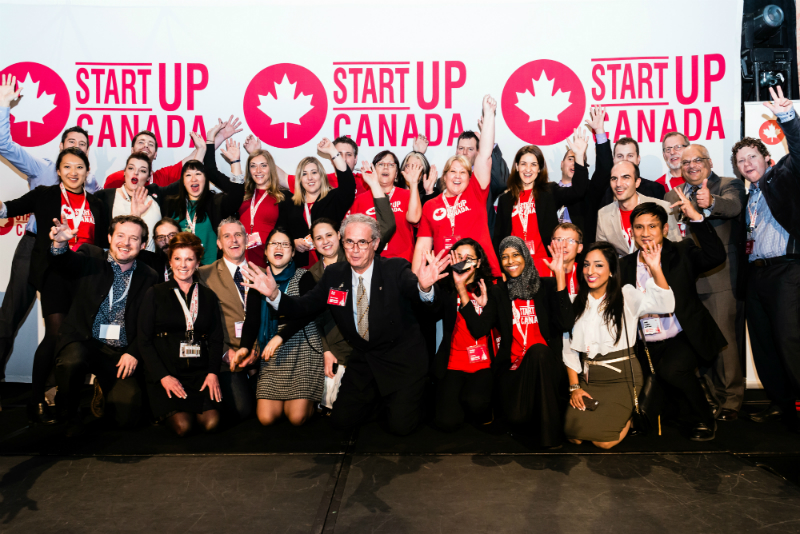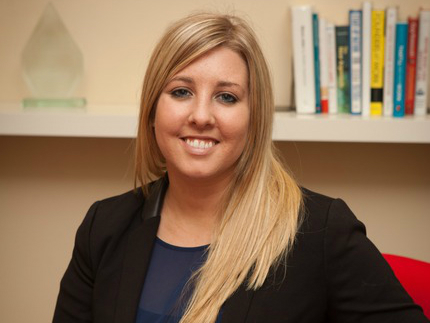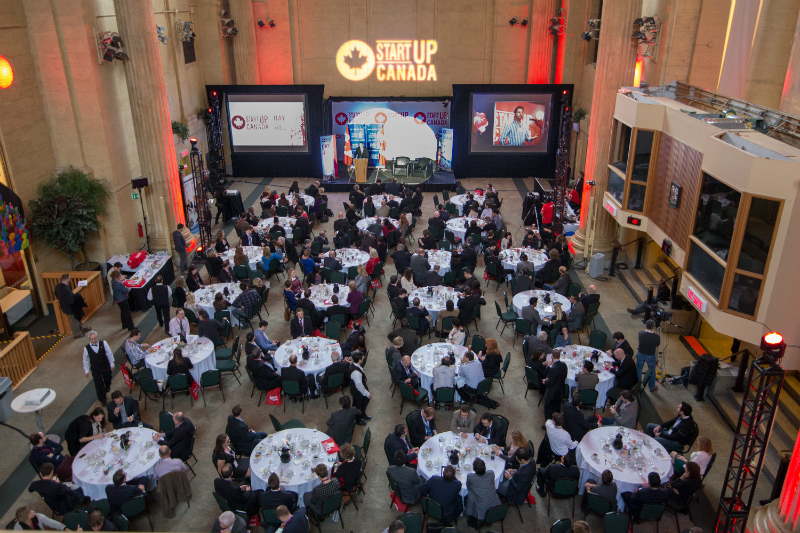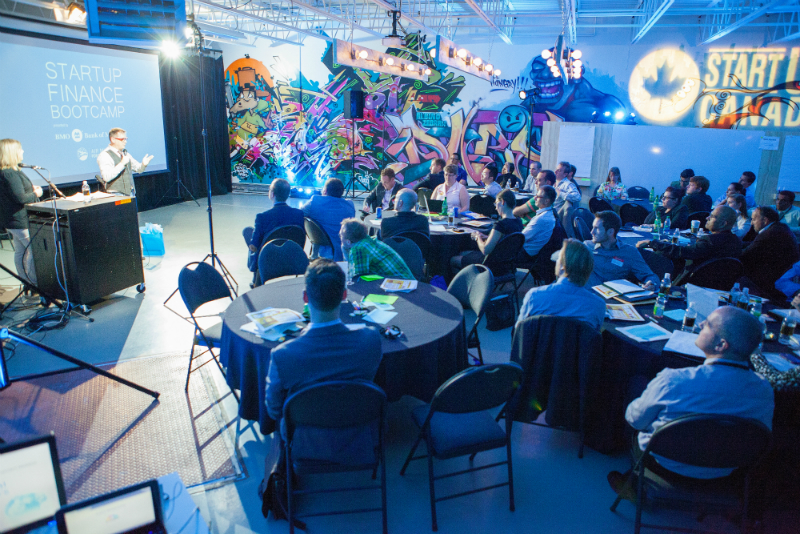The Startup scene in Canada is gaining traction and thriving thanks to the help of companies like Startup Canada. The company provides support for entrepreneurs at the grassroots level and aims to build communities that encourage an entrepreneurial mindset amongst it’s people. Victoria Lennox, the 30-year old CEO and co-founder of Startup Canada, answers our questions and provides insights into what it takes to be a successful social entrepreneur.
Q. What does the company do and what solution does your product or service provide?
Startup Canada is a grassroots, entrepreneur-led organization that brings together, celebrates and gives voice to over 85,000 entrepreneurs, 400 partners and 20 grassroots startup communities in Canada. Startup Canada supports entrepreneurship communities through collaborative economic development programs and initiatives that increase entrepreneurial momentum, job creation and prosperity in Canada.
Q. What makes you unique from your competitors?
When we talk about other organizations that support entrepreneurs we don’t consider them competitors – they are collaborators. It is important for all of us to work together to effectively support our Canadian entrepreneurs.
In saying that, Startup Canada is unique from these other organizations because of our Startup Canada Communities Program which unites entrepreneurs from coast to coast. This program is a key piece of the Startup Canada movement as it gives entrepreneurs the opportunity to tap into their local Startup Canada Community and get connected to resources available locally and further connect them to the national and international networks that Startup Canada has. The collaboration that ensues from this type of connectivity creates entrepreneurial momentum which helps grow the entrepreneurial culture and economy of Canada.
Q. What was the initial idea behind the company?
Startup Canada’s goal is to support entrepreneurs by building an environment and culture for entrepreneurial growth and success in Canada.
To effectively achieve this, in 2012, Startup Canada launched with a 40-stop national tour to crowd-source its mandate, bringing together more than 20,000 Canadians in the largest consultation of entrepreneurs in Canadian history. Observing fragmented support and a lack of a culture that encourages entrepreneurs to reach their full potential; Startup Canada’s role is therefore to:
- Promote a strong entrepreneurial culture;
- Create an environment where every door is the right door for entrepreneurs to start and grow because the community is networked together; and,
- Provide entrepreneurs with a platform and a voice to help create the conditions necessary for entrepreneurial success in Canada. Three years later Startup Canada still aims to support entrepreneurs although how we support them (i.e. the programs we use to support them) changes depending on the needs of the entrepreneurs.
Q. Is this your first business venture?
No, Startup Canada is not business venture and I have not yet had a failed venture, thank goodness. I stared a charity in the UK called NACUE that is soon to celebrate its 6th anniversary with a full time staff creating impact in London for young entrepreneurs. The lessons that I learned in starting and reaching sustainability at NACUE have helped me to be more effective in building Startup Canada. I learned about the importance of constantly innovating; empowering a network so that you can be everywhere and nowhere at the same time; and, how to work with policy makers to advance change for entrepreneurs.
Unlike many non-profit organizations, Startup Canada has been able to ensure its success by aiming for sustainability and creating revenue streams – independent of government. By showing measurable returns and impact, Startup Canada has developed strong and healthy partnerships with private sector corporations like Intuit, TruShield Insurance TELUS and UPS which provide resources that feed right back into the communities we serve.
Q. What is the best and worst thing about working in a startup?
The best part of working and running a startup is the close interaction and communication that happens when you have a smaller team. This increases our ability to be nimble and pivot our programs to the needs the entrepreneurs in our network. With this small team we have been able to work with Startup Canada Communities coast-to-coast to create an ever-larger impact.
Not having enough bandwidth may be the worst thing about operating a startup or any organization, in general. Given the impact that Startup Canada is having, the workload of the organization continues to increase. Although our team is smart and capable, we are sometimes simply very close or at capacity. We’ve been able to overcome these challenges by constantly assessing our investment / impact ratio. Recently, we’ve adapted “Sprint Days”. Essentially the team comes together for a full day to work on priorities of the organization. Not only does it allow the organization to meet important deadlines and get important work done, it also gives team members a chance to work and offer their insight on various projects.
Q. What is the most important skill a person needs in order to thrive in a startup?
As an entrepreneur, I’ve found that it is very important for an entrepreneur to be flexible. The landscape that non-profit and for-profit organizations work in can be unpredictable and has many moving pieces. Startups need to be very responsive in dealing with issues and be able to pivot in order to not only survive but thrive. From the CEO to employees, it is important that this is understood to ensure that decision can be made tactfully. Flexibility is key; but, so is focus.
Q. What entrepreneur do you consider as your role model/inspiration and how has he/she impacted your career?
Actually, the types of leaders that most inspire me probably don’t think of themselves as entrepreneurs. I am inspired by Nelson Mandela, Muhammed Yunis and Mulala Yousafzai, global citizens who – through their unique struggles and gifts – have persevered personally and have inspired and been catalysts of seismic socio-economic shifts and in modern society. They inspire me to look inwards to impact outwards and to adopt the the “give back first” approach to my career and my time on this planet.
Q. If your company were given $1B, how would you spend it?
If Startup Canada had $1 Billion, we would invest heavily in youth entrepreneurship, aboriginal entrepreneurship and building sustainable capacity in our communities across Canada through training, makerspaces, pop-up shops, urban and rural revitalization through entrepreneurship. To ensure that the $1B lives on for eternity – we would take equity investments in startup companies and diversify our entrepreneurial portfolio by procuring spaces as hubs for entrepreneurs, artisans, tech geeks, social innovators and makers to connect, create and thrive.
Q. How can startups play a bigger role in society?
It is important for startups to give-back to their communities by helping other entrepreneurs through mentorship, opening up their networks and telling their stories and the lessons they have learned. Equally important is that when they succeed, that they invest their expertise and capital in new startup companies. This is what builds entrepreneurial momentum which fuels the culture of entrepreneurship and further the economy.
Q. What is your advice for people who want to become entrepreneurs and start their own business?
Firstly, just do it. If you want to become an entrepreneur, take the leap and start. Sometimes people are held back by the fear of failing but like many entrepreneurs say, failing is okay, as long as you learn from it.
Also, be open to feedback. Be sure to ask for feedback and listen to the people around you – employees, customers, etc. This doesn’t mean that you do everything that is told to you but you need to know how to listen to feedback and make it constructive to the growth of your business.
Startup Canada Instagram















